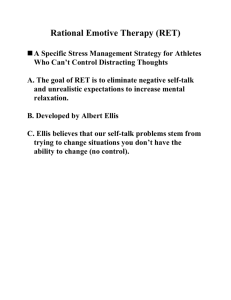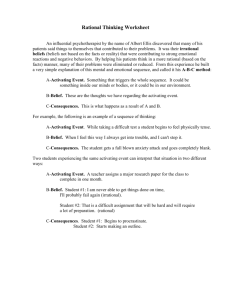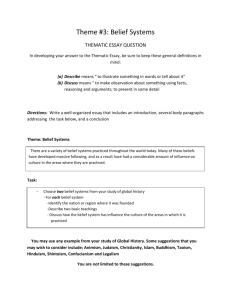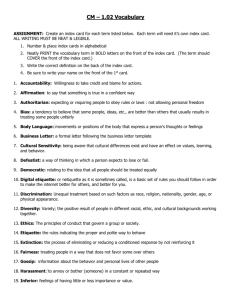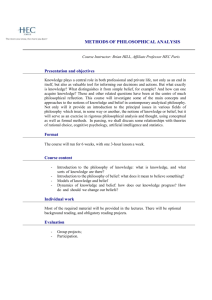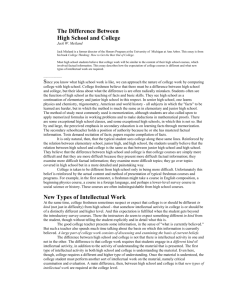Rational - Sheri Matthews
advertisement
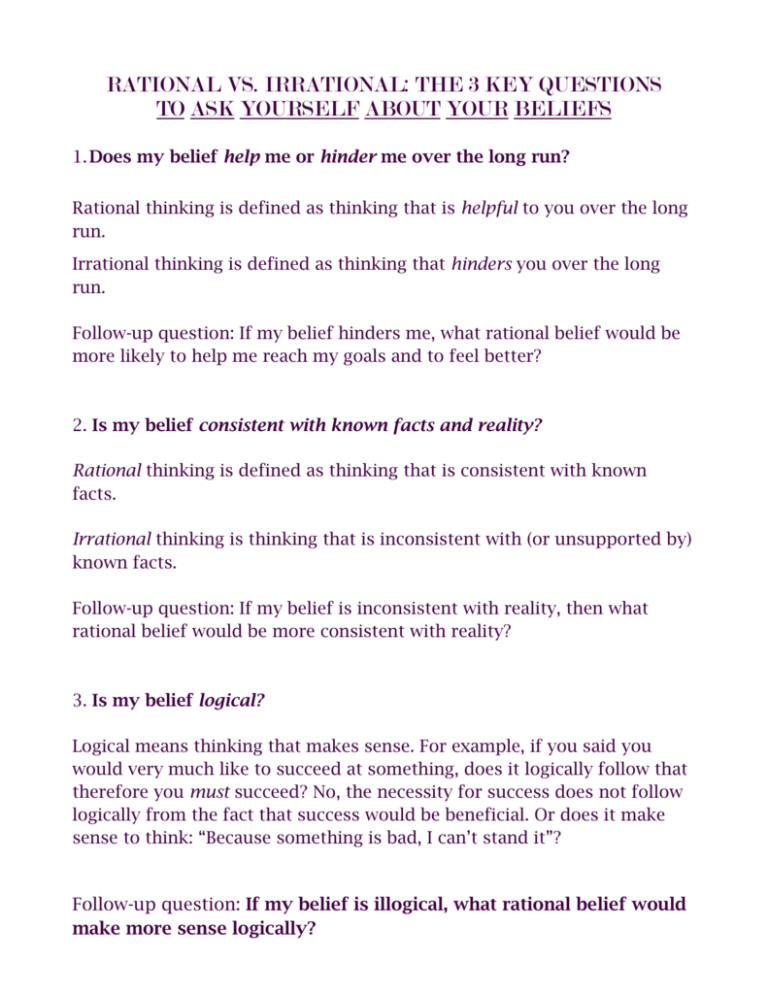
RATIONAL VS. IRRATIONAL: THE 3 KEY QUESTIONS TO ASK YOURSELF ABOUT YOUR BELIEFS 1. Does my belief help me or hinder me over the long run? Rational thinking is defined as thinking that is helpful to you over the long run. Irrational thinking is defined as thinking that hinders you over the long run. Follow-up question: If my belief hinders me, what rational belief would be more likely to help me reach my goals and to feel better? 2. Is my belief consistent with known facts and reality? Rational thinking is defined as thinking that is consistent with known facts. Irrational thinking is thinking that is inconsistent with (or unsupported by) known facts. Follow-up question: If my belief is inconsistent with reality, then what rational belief would be more consistent with reality? 3. Is my belief logical? Logical means thinking that makes sense. For example, if you said you would very much like to succeed at something, does it logically follow that therefore you must succeed? No, the necessity for success does not follow logically from the fact that success would be beneficial. Or does it make sense to think: “Because something is bad, I can’t stand it”? Follow-up question: If my belief is illogical, what rational belief would make more sense logically?
